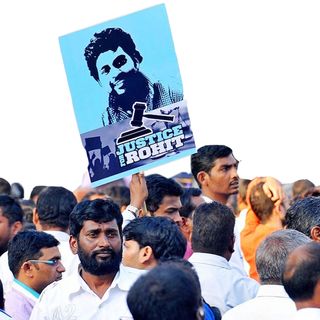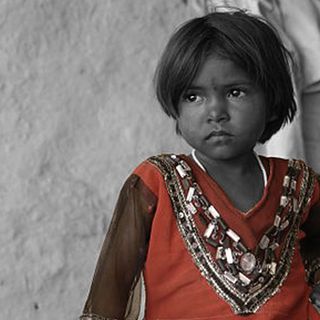Women who survive intimate partner violence are 10% to 25% more likely to face economic hardship — the inability to afford housing, food, health care or other utilities needed for a healthy life — than women who don’t experience such abuse, according to a new University of Rutgers study.
This association is the strongest for women who experience sexual or physical violence; they are 25% more likely to be unable to purchase essential goods and services. Women whose partners do not allow them to work or have autonomy over their own money are approximately 13% more likely to be economically vulnerable, finds the study published in the journal Violence Against Women, after accounting for variables such as ethnicity, education, mental health status, and drug use.
Considering how one-third of all women face some form of abuse at the hands of an intimate partner, both globally and in India, this study makes the case for an issue thought of as a personal problem to be considered a pressing public health issue. “Communities and families can be affected, with the possibility of electricity and water being shut off, eviction and food insecurity — which are all tremendously harmful for mothers and their children,” co-author Julia O’Connor, an assistant professor at University of Central Florida and a graduate of the doctoral program at Rutgers University-New Brunswick’s School of Social Work, said in a statement.
The study is based on data from a previous study in which 5,000 women in 20 large U.S. cities were interviewed after they gave birth to a child. The Rutgers-led study takes a sample of 4,234 of these mothers, who were either in a relationship with the biological father of the child or with a new partner, and supplements the existing data with four follow-up interviews over a period of nine years. In this duration, approximately 25% of these women experienced some form of intimate partner violence, which the study reiterates has long-term economic ramifications, besides physical ones, on the survivors.
Related on The Swaddle:
Hiding Pills, Piercing Condoms, Stealthing — Birth Control Sabotage Takes Many Forms
“Policymakers need to be aware of these harmful effects on the economic stability and security of vulnerable families when there are discussions about the provision of safety net benefits, such as food stamps, Medicaid, and other forms of public assistance,” said Lenna Nepomnyaschy, co-author and associate professor at Rutgers University-New Brunswick’s School of Social Work, in the statement. In the context of the U.S., she is referring to a new rule issued by the Trump administration, scheduled to go into effect on October 15, which would deny green cards to legal immigrants who avail state services such as food stamps, housing, Medicaid — public assistance they are eligible for. “The most vulnerable women — those who are victims of domestic violence, poor, and immigrants — and their children — would thus be the most negatively affected,” said Nepomnyaschy.
A recent Women’s Aid study further binds economics to intimate partner violence: in it, more than two-thirds of survivors of domestic abuse reported their partners restricted their access to money in order to control and mistreat them and stop them from walking out. “The survey of domestic abuse survivors in England found that economic abuse put significant barriers for them to leave their abuser, with survivors [then] facing financial hardship or homelessness after fleeing,” reported The Guardian, when the study released in March 2019. Approximately 50% of the women said they could not afford to eat or pay bills while they were with their abusive partner; more than 40% were in debt because of the economic abuse; and, approximately 33% had to leave their homes — either because they couldn’t pay for it anymore, or when they finally left their partner.
The economics of abuse at the hands of one’s partner is just one aspect; the effects of intimate partner violence on the survivor also include feeling depressed, self-doubt, and guilt; decreased self-esteem and confidence; and, an inability to form new relationships. It can even have psychosomatic repercussions such as headaches, low blood pressure or sugar levels, and irritable bowels. The latest Rutgers study cements material hardship as another consequence of intimate partner violence in this long list, echoing the World Health Organization’s assessment that the “economic costs of intimate partner violence are enormous and have ripple effects throughout society.”
If you are experiencing abuse, you can find help here.




